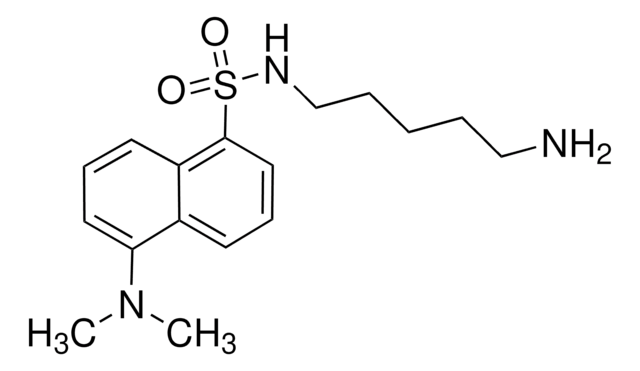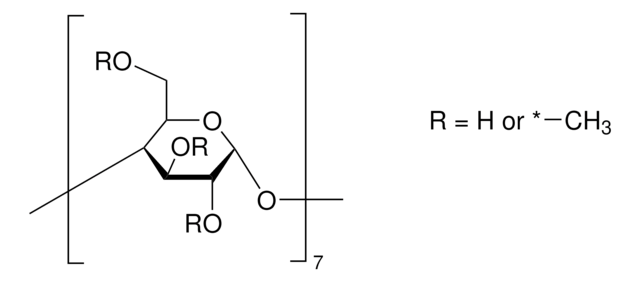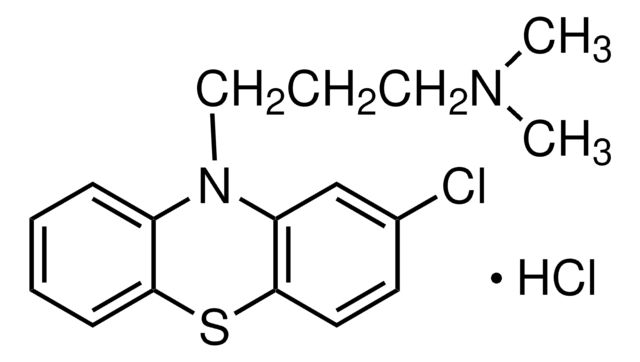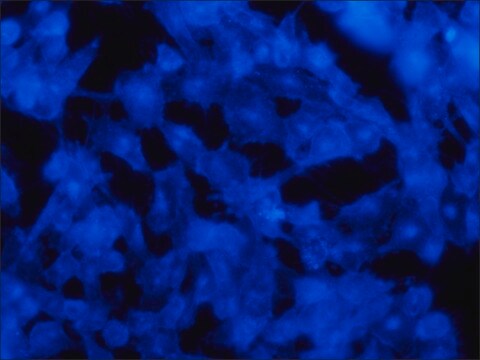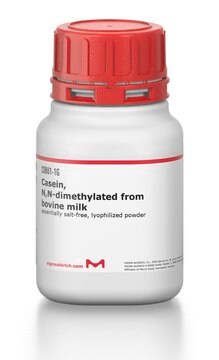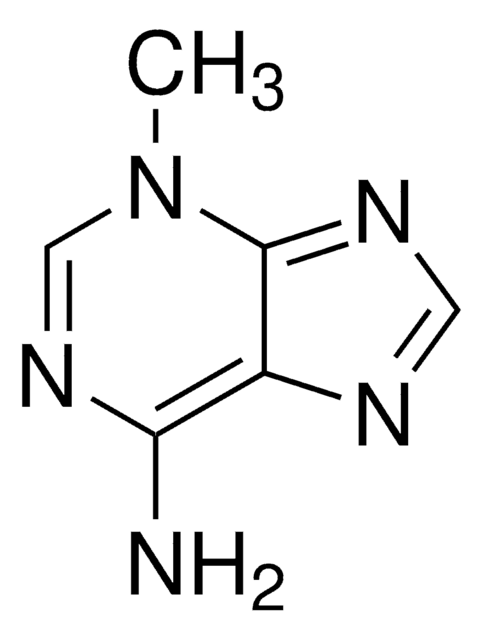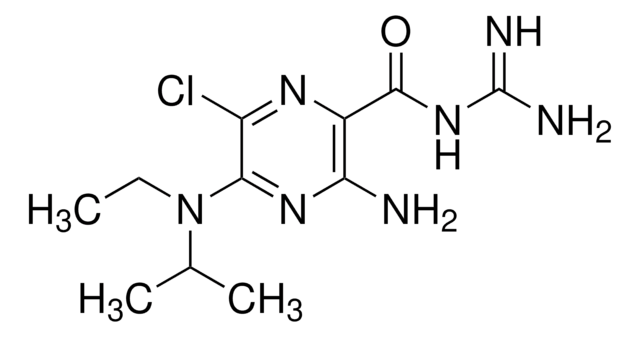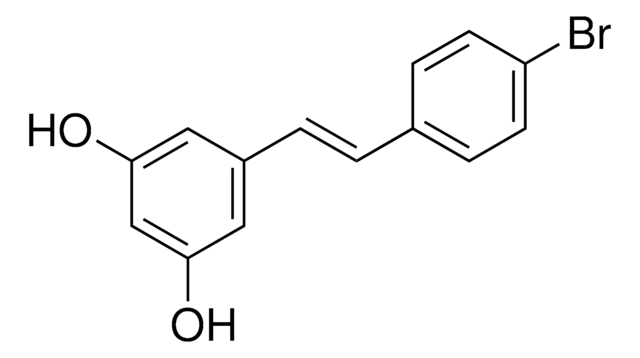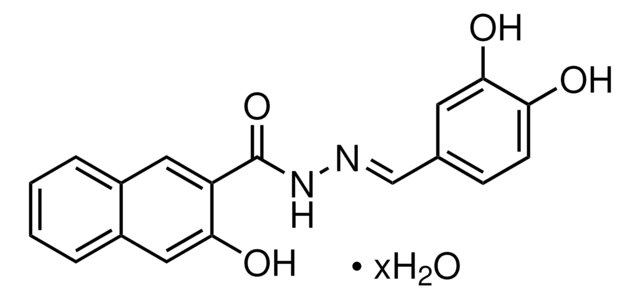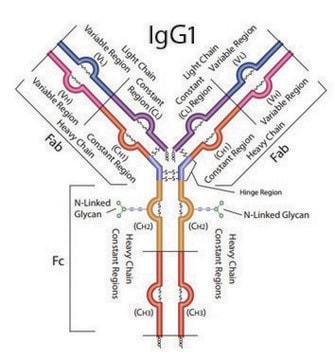D4008
Dansylcadaverin
≥97% (TLC)
Synonym(e):
N-(5-Aminopentyl)-5-dimethylamino-1-naphthalinsulfonamid
About This Item
Empfohlene Produkte
Qualitätsniveau
Assay
≥97% (TLC)
Form
powder
Lagertemp.
−20°C
SMILES String
CN(C)c1cccc2c(cccc12)S(=O)(=O)NCCCCCN
InChI
1S/C17H25N3O2S/c1-20(2)16-10-6-9-15-14(16)8-7-11-17(15)23(21,22)19-13-5-3-4-12-18/h6-11,19H,3-5,12-13,18H2,1-2H3
InChIKey
MLEBFEHOJICQQS-UHFFFAOYSA-N
Suchen Sie nach ähnlichen Produkten? Aufrufen Leitfaden zum Produktvergleich
Allgemeine Beschreibung
Anwendung
- as an endocytosis inhibitor in human proximal tubular HK-2 cells,(62) mouse J774A.1 macrophages and human A549 epithelial cells(63)
- to label autophagic vacuoles in cardiomyocytes for fluorescence microscopy studies(64)
- in monodansylcadaverine (MDC) staining of fibroblasts in Ankylosing spondylitis (AS) samples(65)
Biochem./physiol. Wirkung
Verpackung
Sonstige Hinweise
Signalwort
Warning
H-Sätze
Gefahreneinstufungen
Eye Irrit. 2 - Skin Irrit. 2 - STOT SE 3
Zielorgane
Respiratory system
Lagerklassenschlüssel
11 - Combustible Solids
WGK
WGK 3
Flammpunkt (°F)
Not applicable
Flammpunkt (°C)
Not applicable
Persönliche Schutzausrüstung
dust mask type N95 (US), Eyeshields, Gloves
Analysenzertifikate (COA)
Suchen Sie nach Analysenzertifikate (COA), indem Sie die Lot-/Chargennummer des Produkts eingeben. Lot- und Chargennummern sind auf dem Produktetikett hinter den Wörtern ‘Lot’ oder ‘Batch’ (Lot oder Charge) zu finden.
Besitzen Sie dieses Produkt bereits?
In der Dokumentenbibliothek finden Sie die Dokumentation zu den Produkten, die Sie kürzlich erworben haben.
Kunden haben sich ebenfalls angesehen
Unser Team von Wissenschaftlern verfügt über Erfahrung in allen Forschungsbereichen einschließlich Life Science, Materialwissenschaften, chemischer Synthese, Chromatographie, Analytik und vielen mehr..
Setzen Sie sich mit dem technischen Dienst in Verbindung.